7 + 1 Benefits of VR Training in the Corporate Sector

Today’s workforce needs more than just episodic corporate training.
The corporate sector is highly dynamic, constantly changing, and fiercely competitive. Savvy managers and leaders understand the need for continuous learning for reskilling and upskilling. This is important to drive organizational goals and maintain a competitive edge. While the cost of physical equipment and the associated risks for different industries remains a huge challenge, the benefits of virtual reality training in this aspect cannot be overstated.
Key benefits of virtual reality training
VR training solutions are making it possible for organizations to replicate different aspects of their business operations accurately to provide true-to-life learning experiences for their employees without all of the associated risks and costs of traditional training methods. For organizations that want to develop a culture of continuous learning, we’ve reviewed some of the core benefits of VR training experiences alongside some of the most common VR training examples currently in practice.
1. Safety, fidelity, and realism of the learning environment
Simulation-based learning, as is the case with VR training solutions occurs in a highly-realistic, perfectly reproducible, and incredibly-safe, and environment for learning. Activities in these environments are structured to represent actual or potential situations.
For workers across different industries that span health, security, construction, etc, trainees get to practice in a safe and realistic environment with practical exercises and realistic simulations without the risks of workplace accidents, injuries, and hazards associated with real-life experiences.
2. Experiential learning for strategic upskilling and reskilling
According to Amalgam Insights, VR training solutions have an edge over traditional learning methods thanks to its immersive nature that simulates real-life experiences to put your skills and knowledge into practice.
This repeated experiential learning helps employers get employees on the bicycle rather than just telling them how to ride it. The result of this is the higher level of mastery and expertise that helps employees improve their skills much faster with VR training experiences.
3. Repeatable and controlled learning
One of the key benefits of virtual training solutions aside from its safety and realism is its reproducibility.
Several studies have shown that most trainees and individuals respond to stimuli in virtual training examples in ways that could mirror our emotional and physiological response to such situations in real life. The main benefit here, in this case, is that this learning environment can be controlled such that trainees can easily be exposed to increasingly stressful and challenging scenarios, over time.
4. Higher employee engagement during training
According to a Blake Morgan study, organizations with highly engaged employees stand a chance of outperforming their competitors by as much as 147%. So, while creating a culture of learning can help you increase workforce engagement, it’s a known fact that visual effects are very important when it comes to getting employees motivated to train. And this is exactly where VR training experiences make the difference.
VR training examples in this case such as VR graphical representations can help keep employees highly engaged while eliminating distractions through training. These VR solutions can also easily be integrated with mobile learning solutions to help trainees learn more intently.
5. Highly scalable and cost-effective learning
One of the biggest benefits of virtual reality training in the corporate sector is its effectiveness in training large groups of employees. Before now, most organizations and employers have to find a compromise between scalable learning strategies such as online course and video learning and more effective solutions like on-the-job training and instructor-led learning.
With VR training solutions, more organizations are beginning to discover how they can still eat their cake and have it without compromising scalability with regards to cost, as well as effectiveness, on the other hand. Learning and development teams will find it easier to monitor and measure the success and ROI on their VR training strategies, thanks to the availability of key metrics through data analytics within VR.
6. Better knowledge retention for more effective learning
Studies have shown virtual reality experiences to possess higher engagement and retention rates, compared to regular video or text-based learning. A recent study published in Springer Science+Business Media showed that people who learn with virtual reality experiences have 100% higher retention and recall rates than those who watch 2D regular videos 48 hours after learning.
The essence of learning is to help us get a better knowledge of the world around us as well as improve our critical thinking and problem-solving skills. For workers and trainees in the corporate sector, the ability to retain this acquired knowledge and recalling it whenever needed is what will make the ultimate difference. The benefits of virtual reality training for accelerated learning as well as greater knowledge retention account for its greater effectiveness for corporate training.
7. VR training removes barriers to corporate training
While online and video courses can easily be done remotely, more effective solutions like instructor-based learning often require physical meetings with employees. VR training solutions bring more value to the table in this regard.
As more organizations are now considering remote working in the aftermath of the global health crisis, there has to be an employee training model that fits perfectly in a post-COVID workplace.
VR training offers organizations the opportunity to offer immersive learning experiences for employees from the comfort of their home or office without having to meet one-on-one with instructors. Team members and trainees can now easily learn, collaborate, and bypass distance and geographical barriers with video calls in VR. Remote access to VR training solutions for employees also helps organizations save valuable time and money and helps insulate employees from distractions during the learning process.
Finally;
Benefits of virtual reality training for employee skills assessment
Many employers often perform skill assessment tests to gauge the skills and competency of both current workers and potential hires. Introducing VR training solutions into the mix can help HR evaluate employee skills and potential with quantifiable and much more reliable data.
Whether you’re trying to assess the suitability of a candidate for a particular job role or trying to evaluate workers’ response to real-life situations, assessing workers with VR training provides ample opportunity to put both candidates’ and employees’ skills, behaviors, and performance levels to test with the closest examples to real-world scenarios.
Bottom Line
VR training solutions have diverse applications in different organizations across different industries.
Common VR training examples and applications could include a doctor or medical student performing simulation-based surgery or medical education with 3D human body models or security personnel learning to deal with active shootings, robberies, or other challenging situations that mirror potential real-world scenarios.
VR training experiences could also be useful for workers in the manufacturing industry as much as it would for firefighters and construction workers. Any organization looking to improve their business skills or supplement currently available tools for corporate training will find huge value in the many benefits of virtual reality training.
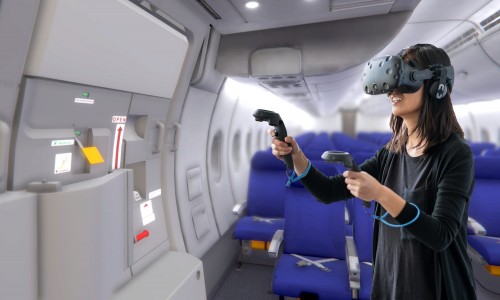

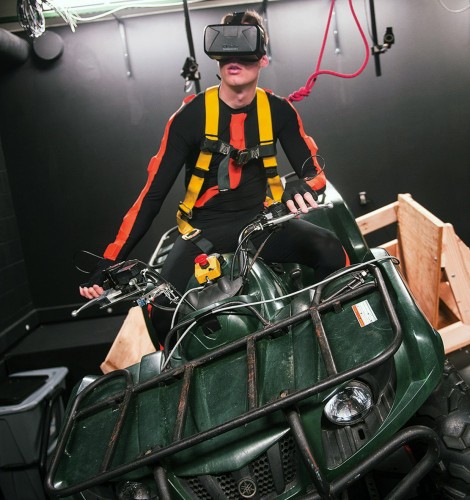
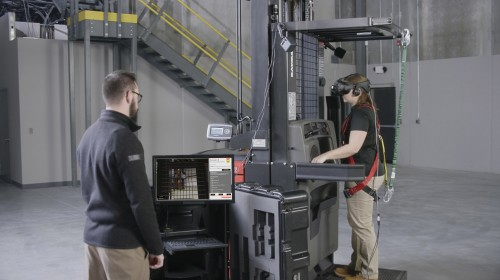
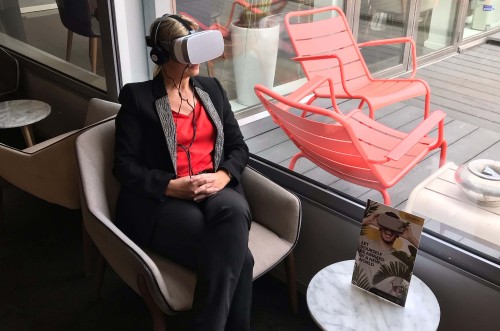
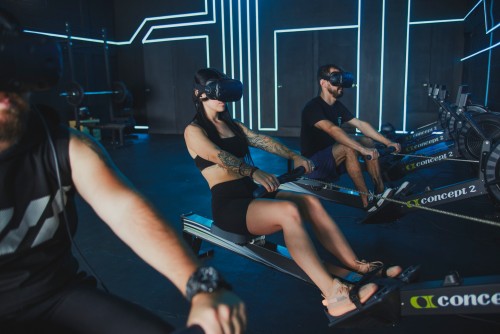

 Call
Call
 Mail
Mail